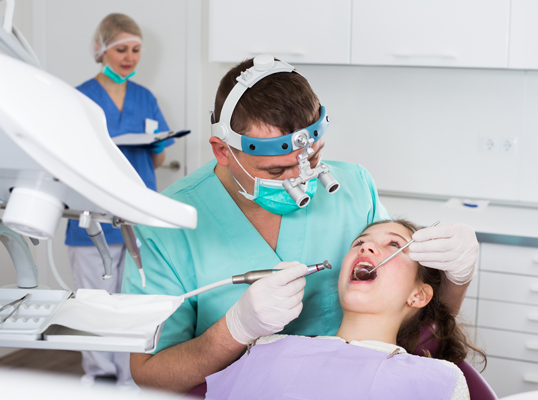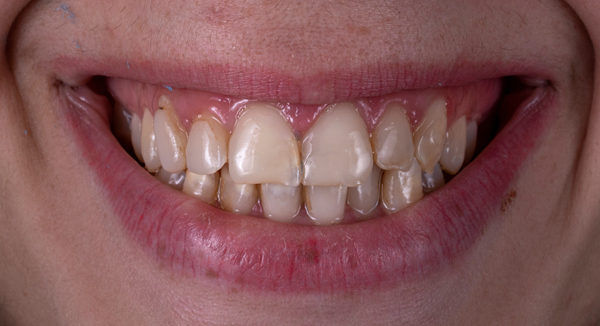Everyday Preventive Dentistry Tips for Adults

The role of preventative dentistry is to minimize the risk of future dental issues in patients. Read on to learn some tips that encourage the prevention of oral issues. If you have experienced and treated dental issues in the past, you will attest that it is better to prevent them from happening in the first place. Patients who receive preventive dentistry treatments are less likely to develop cavities, gum disease, or even experience tooth loss.
Preventive dentistry tips for adults
Many dentists advocate preventive dentistry, but the effectiveness of this approach is dependent on the patient. As an adult, the following tips can help reduce the incidence of oral health issues:
Brush before bedtime
According to the American Dental Association, everyone should brush their teeth twice daily to avoid oral infections. Brushing one's teeth before sleeping, for example, can help minimize plaque accumulation and enamel deterioration. Food particles might become trapped on and between your teeth after eating and before going to bed. Leaving them there all night allows plaque and bacteria to build up, causing tooth decay. Brushing after meals and before sleeping at night helps to avoid this issue.
Floss is also necessary
Although most individuals understand the significance of cleaning their teeth, far too few understand the necessity of flossing for maintaining good oral health. Some adults put off flossing because of discomfort and never get back to it. Putting off flossing is an unhealthy habit that should be broken. Flossing after brushing the teeth helps eliminate the debris caught between the teeth, preventing decay.
Use mouthwash
Mouthwash is a vital aspect of oral healthcare, but many patients believe it is optional. Mouthwash is essential for three significant reasons: it neutralizes acid, remineralizes the teeth, and cleans hard-to-reach areas or crevices. Patients can ask the preventive dentistry professional for recommendations regarding the type of mouthwash to use.
Reduce sugar and acidic foods
All dentists who practice preventive dentistry agree that sugar is unhealthy for the teeth. The reason? The basic answer is that the bacteria in the mouth love sugar and will convert it to acid as they feast. This acid eats away at the tooth enamel, causing erosion. The enamel erodes as people eat more sugar, increasing the chances of developing a cavity. Acidic foods begin to erode the enamel immediately. While it is not feasible to entirely eliminate all of these foods, patients should consume them in moderation.
Avoid using the teeth for unconventional purposes
Some people use their teeth as tools regularly; for breaking nuts, opening bottles, and ripping apart packaging, to mention a few. The teeth may indeed be powerful, but they are not designed for this use, and using them this way will cause chips, fracture, or breakage. Instead, use proper tools for such purposes. Bacteria can easily infiltrate the tooth through a crack, causing infection and abscess that may necessitate a root canal.
Ready to book an appointment?
Visiting your dentist at least twice a year is a critical part of preventive dentistry. The dentist will check the teeth and recommend tips for optimal oral health. Contact our dental office now to schedule your appointment.
Request an appointment here: https://www.timsmithdental.com or call Tim Smith Dental at (903) 592-5934 for an appointment in our Tyler office.
Check out what others are saying about our dental services on Yelp: Preventative Dental Care in Tyler, TX.
Recent Posts
Practicing preventive dentistry at home allows you to reap many benefits for your general health. Brushing and flossing every day is a basic way of keeping your mouth in good shape. Having healthy teeth and gums helps support your whole body’s health. If you want to find out why good everyday dental hygiene is important…
Preventive dentistry deals with dental procedures to prevent dental issues, and it is critical for anybody who wants to keep their natural teeth for the rest of their life. Dentists used to spend most of their time treating dental issues rather than preventing them.Due to people's overly busy schedules, it is easy to put off…
Preventive dentistry can support your efforts to keep your mouth healthy, including practicing good oral hygiene, eating a balanced diet, and avoiding things that can damage your teeth and gums. Good oral hygiene goes a long way in helping to prevent common dental issues, such as tooth decay and gum disease, but sometimes it is…
A dental deep cleaning is an in-depth cleaning procedure that is typically done by a dentist who offers periodontal services. These cleanings are called "deep cleanings" because they go much deeper beneath the soft tissues than a traditional cleaning would. During a dental deep cleaning, a general dentist will scrape beneath the gum tissues and…


